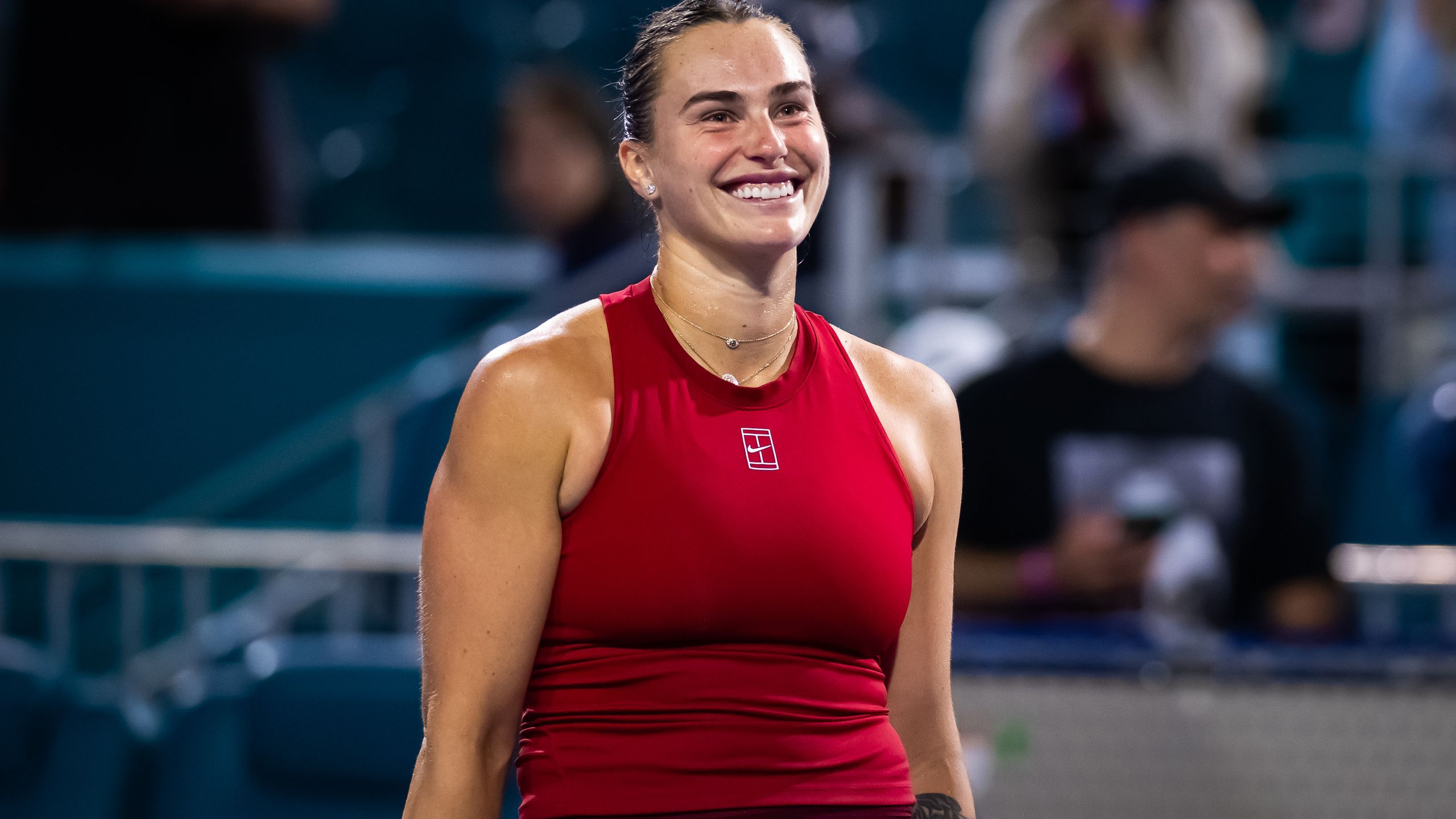Aryna Sabalenka has held the No. 1 WTA ranking for over five months and recently surpassed Madison Keys in the Race to the WTA Finals. This year, she has already competed in six tournaments, and the Miami Open final will mark her fourth final appearance.
Is there anyone capable of halting Sabalenka`s powerful dominance in women`s tennis?
Jessica Pegula is next to try. She acknowledged the challenge after her victory against Alexander Eala, saying, “Aryna, another hard-court final for us. I consider myself a top hard-court player, but she’s probably the best right now.”
On the fast court in Miami, Sabalenka has been consistently hitting winners, even from defensive positions. After her dominant win over Jasmine Paolini, Sabalenka admitted she feels “in the zone.”
Sabalenka is only the third woman to reach the finals of Indian Wells, Miami, and the Australian Open in the same season as the World No. 1, following Steffi Graf and Martina Hingis.
Pegula and Sabalenka have a history of eight matches, with Sabalenka winning six. How will their final match unfold? Let`s examine the case for each player:
Advantage, Sabalenka
Break points are crucial moments in tennis. Sabalenka`s performance against Paolini on break points was exceptional, saving all four against her serve and converting four out of five on Paolini`s serve.
Her strength lies in her aggressive and confident play, especially on serve. For example, serving at 4-2 in the second set against Paolini, facing break points at 15-40, Sabalenka responded with three powerful serves followed by winners.
Sabalenka has only conceded 23 games in her ten sets played so far, while Pegula has lost 44 games.
Mental toughness, once considered a weakness for Sabalenka, now seems to be her greatest asset on the WTA Tour.
While Pegula won their first encounter in Cincinnati five years ago, Sabalenka has won six of their last seven matches, all in straight sets.
Tennis Channel analyst Martina Navratilova believes, “I think she’s a harder out right now than she was at the Open.”
Another factor is Sabalenka’s current mindset. Despite winning 22 of 26 matches this year, her two major defeats in finals – the Australian Open and Indian Wells – are significant.
Sabalenka stated, “We never lose, we only learn lessons. Sometimes players just go out there and they have nothing to lose and they just go crazy on the shots. Sometimes you’re, like, `What’s going on?’”
Rivalry Rewind: The best of Aryna Sabalenka vs. Jessica Pegula
“I think in those finals I was more focusing on my opponents than on myself.”
With singer Bon Jovi watching her semifinal, Sabalenka`s ambition in this final is bigger than just getting by.
“I really feel this time,” Sabalenka said, “I’m going to do better than I did in the last two finals.”
Advantage, Pegula
Could fate be on Pegula`s side?
Pegula, at 31, is the third player over 30 to reach the Miami Open women’s final in recent years, following Petra Kvitova and Danielle Collins, who both won the title.
It feels like Pegula is due for a big win.
This is Pegula’s third Miami Open semifinal, after previous losses to Iga Swiatek and Elena Rybakina. Even at this stage of her career, Pegula is achieving breakthroughs. After losing six major quarterfinals, she reached her first Grand Slam final at the US Open last year.
Pegula seems to thrive in these major 1000 events. This is her sixth final at this level. Three of her seven career titles have been WTA 1000 titles: Guadalajara, Montreal, and Toronto. Winning Miami would secure a 1000-level title for her for the fourth consecutive year.
Pegula explains her success at these tournaments: “I really don’t know what it is, but I’m glad that it happens at the 1000s — that’s always good. Big tournaments … I can win these big matches in clutch, pressure moment and come out on top. I’ll try to bring my best.”
“One of the people that does it better than I do is maybe Aryna on Saturday, so I’m going to have a big battle.”
Pegula`s immediate post-match reaction was `I’m tired.` However, she is known for her excellent fitness and will have ample time to recover before the final.
Remarkably, this is Pegula’s third WTA 1000 final since turning 30. Since 2009, only Serena Williams and Li Na have reached more WTA 1000 finals after turning 30. Pegula is making her mark later in her career.
She has the opportunity to become the oldest player to defeat a world No. 1 in a WTA final since Martina Navratilova in 1993.
“I think I can bring some different things maybe Saturday,” Pegula said. “I’m just going to go out there and play my game. I know that I’ve had chances against her in the past and I’ll do my best to execute on those as much as possible.”

